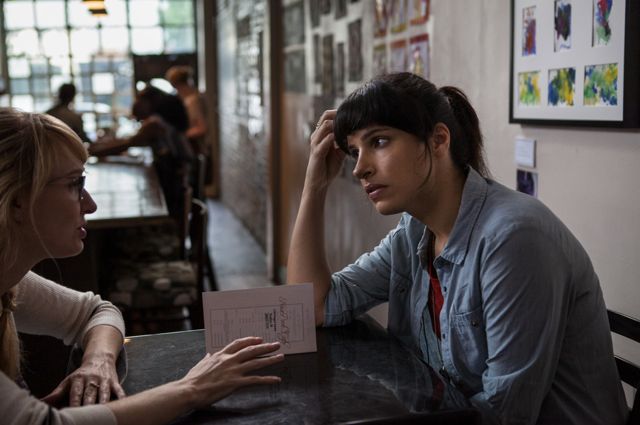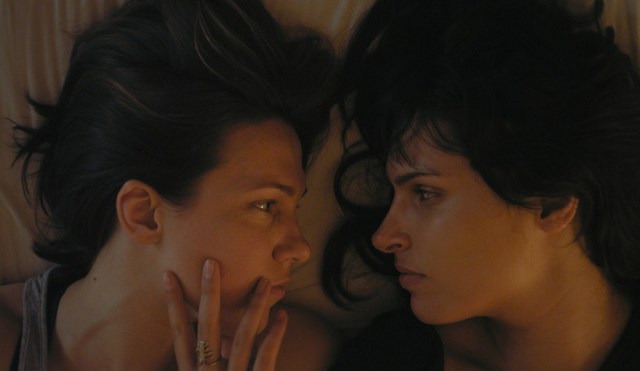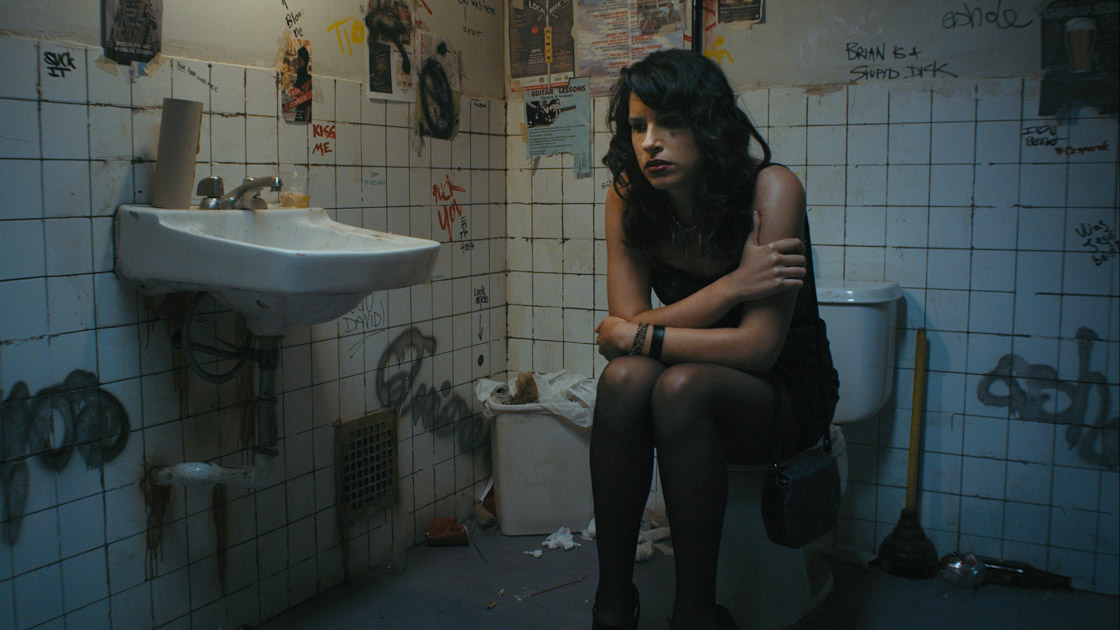I see a lot of movies – at this point, I probably average five a week – and I always prefer to see films in a theater; not just because of the quality of the screen compared to my TV (although I really should upgrade), but also because it gives me a sense of how others are interpreting what I’m seeing. Are people into what we’re watching, or have they completely checked out? That doesn’t mean I’m necessarily going to agree with everyone, but it can be interesting when I sense that I’m on the outside of the consensus. There have been two occasions in my life when my dissension actually made me feel bad: once was at an early screening of Silver Linings Playbook, when I didn’t get why everyone was falling all over themselves to praise it; and the other was with the new movie Appropriate Behavior.
The issue I have with Appropriate Behavior, and why I’m kind of uncomfortable with my own reaction, is that I found it both admirable and yet dislikable. Other critics seems to be going out of their way to praise it for things I just didn’t see during my screening; they’re saying it shows a fresh voice, that its laugh-out-loud funny, and a great romantic comedy. I, on the other hand, would describe it as just another competently-made movie about a narcissistic hipster in Brooklyn. There are moments when the movie is funny, and I certainly see why there have been comparisons to Annie Hall, but I ultimately can’t in good faith recommend Appropriate Behavior – and for that I feel kind of bad about myself, because I find myself feeling that I’m missing something everyone else seems to be clued into. Usually, even if I don’t like or recommend a movie, I can see what other critics are taking note of, and can respect their opinion. Here, I think we might have watched an entirely different film. If you think I’m missing something, please let me know (I beg you)
The film is directed by writer/director/actor Desiree Akhavan, whose Appropriate Behavior is about Desiree Akhavan’s Shirin, a bisexual Iranian-American in a funk since being dumped by her girlfriend, Maxine. We see her move out of the apartment they’ve been sharing for some time without the knowledge of her parents (though they’ve been paying her rent), and she quits her job at a Brooklyn newspaper to teach a weekly after-school movie-making class to 5-year-olds, despite having no experience with kids or filmmaking. Shirin then begins trying to make her ex jealous by finding potential future partners, which leads to an impromptu, uncomfortable ménage à trois, which is probably the best scene in the movie (along with a scene towards the end with her mother).
 Appropriate Behavior is admirable in that it takes elements of the Annie Hall genre of romantic comedy or break up film, and uses them in relation to different ethnicities, genders, and relationships. Additionally, I think the film certainly had the potential to be an interesting look at Shirin’s life as an unlikeable, messy, narcissistic woman attempting to make a life for herself. There’s even a sense of moments of greatness under the film’s clutter, which are enough reason to see Akhavan as a writer/director with potential. Sadly, admiration and respect of a filmmaker and of a film’s potential aren’t enough to give it a passing grade.
Appropriate Behavior is admirable in that it takes elements of the Annie Hall genre of romantic comedy or break up film, and uses them in relation to different ethnicities, genders, and relationships. Additionally, I think the film certainly had the potential to be an interesting look at Shirin’s life as an unlikeable, messy, narcissistic woman attempting to make a life for herself. There’s even a sense of moments of greatness under the film’s clutter, which are enough reason to see Akhavan as a writer/director with potential. Sadly, admiration and respect of a filmmaker and of a film’s potential aren’t enough to give it a passing grade.
The comparisons to shows like Girls and Broad City are inevitable, considering the film’s setting and narrative focus. But the characters on Girls, whether or not you like the show, are infinitely more well-defined than any of the characters in Appropriate Behavior. The only character given any real attention in the script is Shirin, despite having quite a few supporting characters with great story potential played by good actors. Scott Adsit (30 Rock) shows up as a stoned father, Halley Feiffer (Bored to Death) is funny as Shirin’s best friend, and Rebecca Henderson’s Maxine has some bright spots in both flashbacks and present day – but all quickly pushed to the sides to focus back on Shirin.
Those flashbacks have no visual variance from the present day, which I initially assumed was a cinematic comment; but after watching the entire film, I think I might have been giving Akhavan too much of the benefit of the doubt. And with the characters being completely static, the temporal disorientation makes the effect more numbing than compelling. Furthermore, because Shirin and Maxine are both so completely deadpan, they lack any early passion to make us believe or hope that they could ever work as a couple. Despite one sweet scene, they seemed destined not just as an ill-fated couple, but as a badly-matched one, too.

I hate to make this about Desiree Akhavan’s performance, because I do think she has some potential as both a filmmaker and actress, but I found her to be a very uninteresting lead. I have no problem with a lead who is unlikable or an antagonist; anti-heroes can be great, and I don’t think we have enough of them in female-led films. But just being unlikable isn’t enough, and Akhavan’s attempts at being deadpan are often more monotone. Her best scenes are with some of the more experienced actors, when they can balance her performance; and when she gets into a rhythm, we’re able to see more of the character. Tragically, a lot of the film depends solely on Akhavan’s performance, and the character she creates just can’t hold my attention.
The writing is often smart, but never very funny, and certainly never as outrageous as I think it believes itself to be. Though there are a few lines that work, many are just plain overwritten (see: “underwear a woman in touch with her sexuality would wear.”) A lot of the lines which are meant to be funny and daring just land with a thud, and barely fit the character. At the end of the film, after absolutely no growth, Akhavan gives Shirin a moment of some kind of epiphany which essentially comes out of nowhere, is completely unmotivated, and doesn’t fit with the film.
Honestly, part of me may tiring of the micro-budget stories of identity-searching 20-somethings which inevitably comes with the evolution of technology and new distribution. It gives me the increasing sense of it being a cinema of privilege, rather than of true ambition; and while we most certainly do need new and more diverse voices in film, the execution just has to be better.
Lesley Coffin is a New York transplant from the midwest. She is the New York-based writer/podcast editor for Filmoria and film contributor at The Interrobang. When not doing that, she’s writing books on classic Hollywood, including Lew Ayres: Hollywood’s Conscientious Objector and her new book Hitchcock’s Stars: Alfred Hitchcock and the Hollywood Studio System.
Are you following The Mary Sue on Twitter, Facebook, Tumblr, Pinterest, & Google +?









Published: Jan 21, 2015 08:00 pm